229 Search Results for partner strategies
May 12, 2014
by Robin Parker -
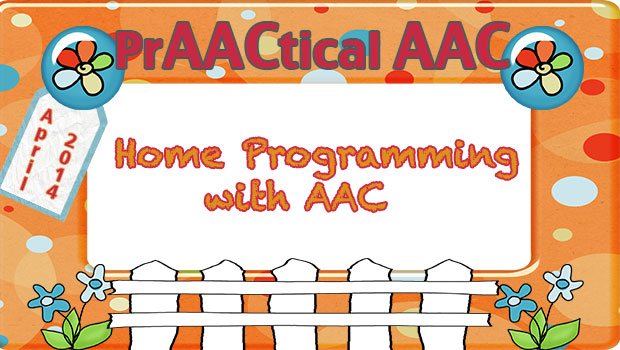
As SLP’s we love to have families learn and carryover the work we do in speech-language treatment sessions. This helps ensure carryover of progress and generalization of therapy success. However, as Carole clearly illustrated last Monday, there are a lot of family dynamics, cultural issues, and family challenges that make adding extra work possibly burdensome. We really (really) do not want to burden families, but its beneficial to have AAC communication happen all day long. We once had a client who had a very huge house with lots of bedrooms, but mom chose to keep her children together in one bedroom. This was just in case the AAC user woke in the middle of the night. Then she would have someone close by as a communication partner. This was a family who took home programming to the max and expanded and modified it to fit their family. A main issue... [Read More...]
May 5, 2014
by Carole Zangari -
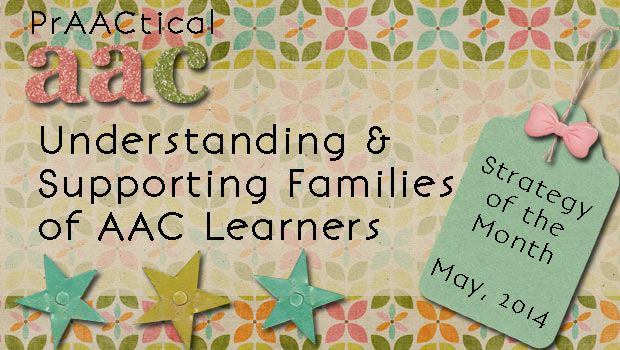
Let’s start with a basic premise: We can’t maximize AAC learning outcomes unless we’re working well with families. This is easier said than done, especially in some settings. As a clinician in a university clinic, for example, seeing families is the norm. We get to interact with them before and after the therapy. They get to observe or participate in the session. We can show them the data, observe how they interact with the AAC user in their family, and answer questions as they arise. And even with all of that, supporting them is challenging in that it takes time, skill, and planning. Although it is one of our favorite things to do, it’s not always easy to align our actions with our (stellar, ambitious) intentions. Multiply that by a factor of a zillion for our colleagues in schools and other settings where frequent, casual interactions are difficult to come... [Read More...]
April 10, 2014
by Carole Zangari -
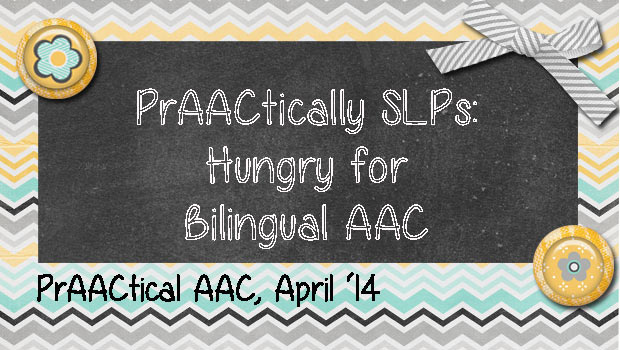
We are so excited to launch, PrAACtically SLPs, a new series featuring the voices of graduate students in SLP programs who do outstanding work in AAC. We start off with a wonderful group from the University of North Carolina at Chapel Hill. Allie Rodriguez, Caitlin Rich, and Megan Latta are second year SLP students who will be graduating in May. They recently concluded an AAC course taught by Dr. Penny Hatch, who continues to mentor them in the field of AAC and literacy. I met these energetic young professionals at the North Carolina Augmentative Communication Association Conference in February and was inspired by their passion. In this post, they tell us about their AAC experiences on a trip to Guatemala. Hungry for Bilingual AAC? Today, our population is becoming more culturally diverse, which, in turn, has caused our caseloads to reflect this change. There is a growing... [Read More...]
March 20, 2014
by Carole Zangari -
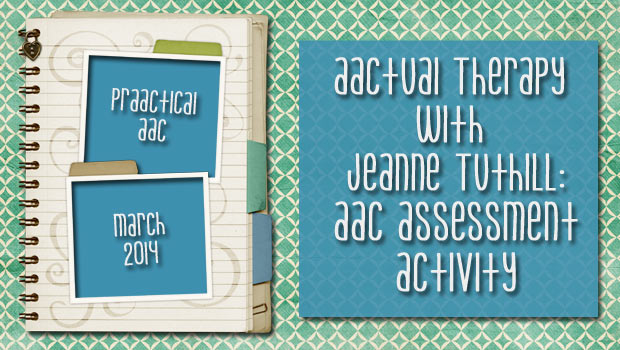
We’re so excited to introduce a new AACtual therapist, Jeanne Tuthill. Jeanne has been an SLP for over 15 years and has specialized in AAC for the past 6 years. As an AT specialist for the Collaborative Center for Assistive Technology and Training (CCATT) in Northampton, Massachusetts, Jeanne evaluates and provides consultation services for K-12 students in schools throughout Western Massachusetts. In addition, she provides workshops and professional development training in that region. Since 2012, Jeanne has served as an adjunct faculty member for the Assistive Technology Graduate Program at Simmons College. She has also presented at a number of regional and national conferences. You can see Jeanne here with her long-time student Lauren Suprenant, who is using a Step-by-Step Communicator, to share information about how she communicates with others (introduction strategy). Jeanne shares a little bit about her work and then discusses an activity that is used in their AAC... [Read More...]
March 17, 2014
by Carole Zangari -
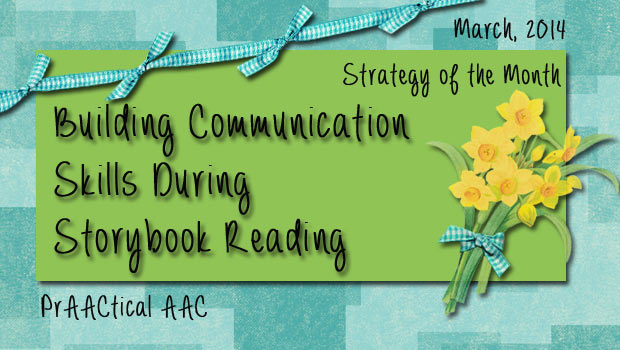
In this post, we continue to explore strategies for advancing the literacy experiences of people who use AAC. Today, we’ll look at a strategy used in the research of Drs. Cathy Binger and Jennifer Kent-Walsh. What is a little different about this strategy is that it uses literacy experiences, specifically storybook reading, to build communication skills. One component of their research focuses on an interactive reading strategy called RAAP: Read, Ask, Answer, Prompt. There is lots to love about this approach, but one of our favorite things is that is makes heavy use of aided language input, an intervention strategy that is critical for partners of beginning communicators to use. You can read more about aided language input and see videos here. It also gets partners using language expansions and extensions, an intervention strategy that is effective for communicators at many levels of proficiency. Finally, we appreciate the frequent use of... [Read More...]
February 24, 2014
by Robin Parker -
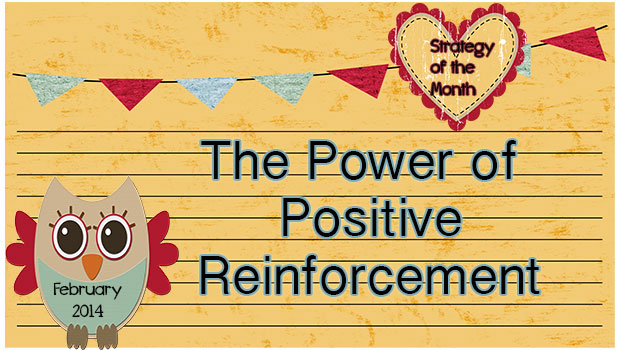
Positive Reinforcement has a lot of power but it is a lot more than making a learner feel good about themselves. Positive reinforcement is the response to a behavior that will make that behavior occur again. In AAC and teaching terms, we are often thinking about a communicative or language behavior. We can also be thinking about a participation behavior that will allow a learner to have more access to meaningful language experiences. We are not usually thinking about ‘good art’ or ‘great work’. By keeping in mind some top positive reinforcement strategies, you will be prepared to have varied individualized strategies that will make it most likely that the communication behaviors you are teaching will spontaneously occur again and again. Power Positive Reinforcement Strategies for AAC Learners: Natural Positive Reinforcers– It is naturally reinforcing to ask for an item and then be given that item. It is naturally reinforcing... [Read More...]
February 11, 2014
by Carole Zangari -
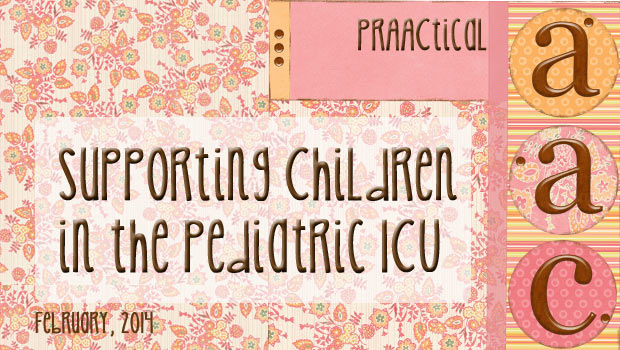
If there is anything scarier than having a very sick child in the ICU, it has to be when that child has no means of communication. In this Research Tuesday post, we join the efforts spearheaded by Rachel Wynn of Gray Matter Therapy to share an article that discusses the issues and presents some solution strategies. When we think of research studies in SLP, we think of experimental designs and randomized controlled trials (RCTs). In AAC, group research designs are uncommon because of the immense heterogeneity of this clinical population. Even limiting the study to one single disorder and age group, say teenagers with dysarthria secondary to cerebral palsy, contains too much heterogeneity for most group research. Instead, we see more single subject design experimental studies (SSEDs) in AAC. When well-designed, SSEDs have strong experimental control and allow researchers to answer causal questions, such as “did the treatment (e.g., teaching... [Read More...]
January 22, 2014
by Carole Zangari -
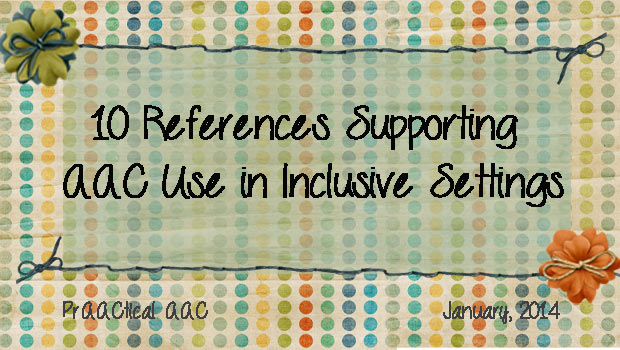
We sometimes get contacted by colleagues who are looking for references supporting the use of AAC. Here are some that are specific to inclusive settings in schools and in the community.* Alquraini, T., & Gut, D. (2012). Critical components of successful inclusion of students with severe disabilities: Literature review. International Journal of Special Education, 27(1), 42-59. Balandin, S., & Duchan, J. (2007). Communication: Access to inclusion. Journal of Intellectual and Developmental Disability, 32(4), 230-232. Batorowicz, B., Mcdougall, S., & Shepherd, T. A. (2006). AAC and community partnerships: The participation path to community inclusion. Augmentative and Alternative Communication, 22(3), 178-195. Calculator, S. (2009). Augmentative and alternative communication (AAC) and inclusive education for students with the most severe disabilities. International Journal of Inclusive Education, 13 (1) 93-113. Carter, M., & Maxwell, K., (1998). Promoting interaction with children using augmentative communication through peer-directed intervention. International Journal of Disability, Development, and Education 45(1) 75-96. Daugherty,... [Read More...]
January 14, 2014
by Carole Zangari -
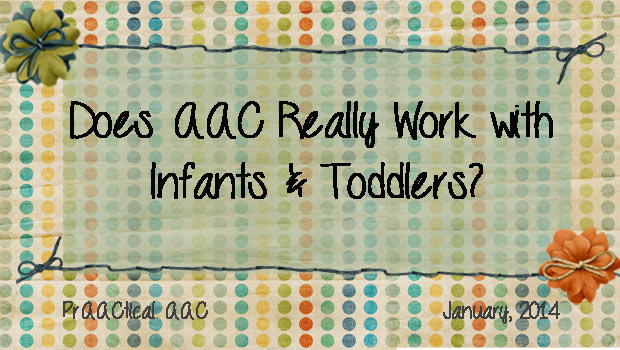
We are occasionally asked how old children have to be before you can begin teaching AAC. Our answer: There is no set minimum age. Nor is there any research evidence that one has to use an oral-language only approach for a set period of time before beginning AAC. Today, we’re delighted to be able to share an article on this topic with you. This article describes a research review in which Branson and Demchak identified a dozen research studies looking specifically at the use of various AAC tools and strategies with infants and toddlers. Data from 190 children up to 36 months of age were examined. Of the 12 studies reviewed, 7 met criteria for having conclusive findings. In 97% of all cases, the children’s communication skills improved. Looking only at the 7 most rigorous studies is even more encouraging: All 135 babies/toddlers demonstrated improved communication skills following AAC intervention.... [Read More...]
December 31, 2013
by Robin Parker -
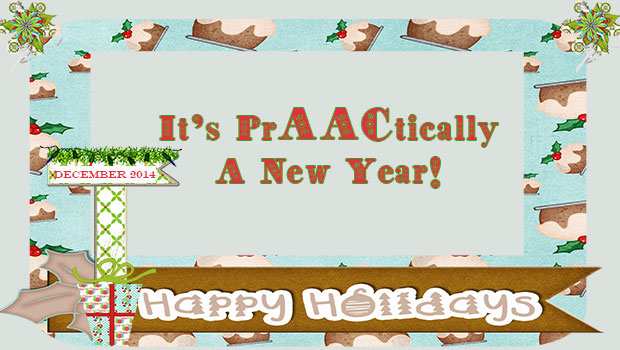
It is just about 2014. Hard to believe another year is finished and we are moving on once again. Our wishes for 2014 are for ALL Learners to have access to: Aided Language Input Communication Displays that meet their needs Role Models Presumed Competence Core Word Instruction Fringe Word Instruction Friends Many Meaningful Language Experiences Frequent Communication Opportunities Fun Learning Our Wishes for ALL SLP’s and Educators to have access to: An Exciting and Stimulating Personal Learning Network (PLN) Appropriate Goals and Strategies Meaningful Language Experiences Role Models Laminator and Laminator Materials Literacy Materials Core Word Highlighter Tools, Page Fluffers & Spacers, Apps for Learning Language An AAC Philosophy Fun Teaching









